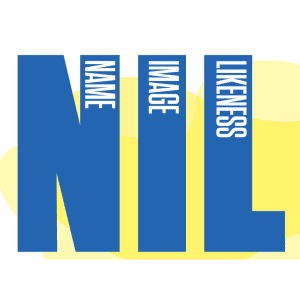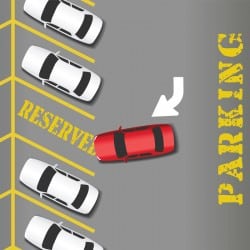Takeaway – Nonprofits and consumer brands continue to find new ways to promote their collaborations. Take care that messages delivered at live events, in print, and online are consistent with the IRS rules regarding qualified sponsorships to avoid triggering unintended tax consequences for nonprofits. Online rules also need to comply with best practices for disclosing any paid relationships. Brands and nonprofits can help streamline the process with effective contracts at the outset.
Nonprofits and for-profits (in this article, “Brands” for easy reference) can collaborate in a number of ways to benefit both organizations. Nonprofits benefit by receiving financial support and access to a wider audience. Brands benefit from the goodwill generated by supporting a charitable cause, while simultaneously furthering their own purposes. These collaborations may take a number of forms. (For further reading, see articles on our website , Selfish Giving, and Engage for Good’s online resource Cause Marketing and the Law).
We’ve recently seen a number of nonprofits expand their efforts to more consciously address online collaboration. In this article, I provide a refresher to clarify where the IRS draws the line on these types of partnerships. Understanding this line can help Brands to maximize their benefits and charities to avoid unwanted tax consequences.
What are Qualified Sponsorship Payments?
A typical strategy for Brands and nonprofits to collaborate is through sponsored events. While the pandemic has thrown traditional fundraising events for a loop, many nonprofits have pivoted to digital engagements or are now beginning to plan live events again as vaccination rates rise. Whether an event is digital or live, many nonprofits underwrite their events with support from Brand sponsors. In exchange for this support, Brands typically receive certain benefits. Those benefits may include a page in the event program, placement of their logo on the step-and-repeat, or a booth at the event. In the virtual context, Brands may get a shout-out or other acknowledgment during the event, in thank-you emails to attendees, or in press releases issued by the nonprofit.
If a nonprofit wants to avoid tax on the sponsorship payments that are received in exchange for certain benefits to the Brand, one strategy is to ensure that the payments qualify as “Qualified Sponsorship Payments”, the term used in Section 513(i) of the Internal Revenue Code. In order to be categorized as a Qualified Sponsorship Payment, the payment must be made without any arrangement or expectation of a “substantial return benefit.” Payments made in return for advertising or marketing services may constitute a substantial return benefit, and cause the payment to be subject to tax under the IRS’s Unrelated Business Income Tax (“UBIT”) rules.
So when does including a Brand’s logo in the nonprofit’s event, or allowing the Brand to have a booth or table at the event, constitute a “substantial return benefit”? Fortunately, the IRS has provided guidance on this question. According to the IRS, one way to avoid providing the Brand a “substantial return benefit” is for the Brand and nonprofit to avoid language that “promotes or markets any trade or business”. The IRS goes on to provide several examples of activities that are allowable under the qualified sponsorship rules, including:
- Distributing a Brand’s products to the general public at the event, either for free or purchase
- Including a Brand’s logo, slogan, address(es), telephone number, descriptions of a Brand’s product line or services, PROVIDED that all the foregoing do not include any comparative or qualitive descriptions of the Brand’s goods and services.
- Exclusive sponsorship arrangements (i.e., having a Brand be the only bakery sponsoring the event. NOTE – this is different than an exclusive provider arrangement, described below)
The IRS, in its guidance, also describes what types of messaging and activities are considered “substantial” return benefits for Brands and therefore NOT qualified sponsorship activities, including:
- Advertising for the Brand (messaging that promotes or markets a Brand, including messaging that contains comparative or qualitative descriptions of the Brand’s goods/services)
- Exclusive provider arrangements that limit the sale, distribution, availability, or use of competing products/services in connection with the nonprofit’s event/activities (i.e., having a Brand be the sole provider of cookies for an event. NOTE – this is different from the exclusive sponsorship arrangements, described above)
Social Media Considerations
Many Brands and nonprofits have begun to include social media posts as part of their messaging around events and partnerships. In addition to concerns about UBIT and qualified sponsorships, Brands and nonprofits have to be wary of rules implemented by the social media platforms (Instagram, Twitter, and TikTok, for instance) and guidelines issued by the Federal Trade Commission.
Nonprofits often thank their Brand sponsors for their support. It’s important that the language included in those posts is agreed upon by the Brand and nonprofit, and is vetted to make sure it doesn’t amount to an advertisement or endorsement of the Brand’s products or services. Similarly, when a Brand posts to highlights its support of the nonprofit, the parties should ensure that the post doesn’t create the implication that the nonprofit is endorsing the Brand’s products.
Brands and nonprofits also have to make sure their posts include appropriate disclosures to put their respective followers on notice that the content they are posting is part of a partnership. How those disclosures should be structured depends on the platform and the nature of the post, but has to be clear enough so that the posts comply with the platforms’ rules and the FTC’s guidelines.
If the Brand and nonprofit have brought a celebrity or influencer into the event to help raise its profile, the same general principles apply to the influencer’s posts. The Brand and nonprofit should make sure there are contractual provisions as well as practical guidelines provided that clarify what the influencer can and cannot post, how those posts should be timed and structured, and what material disclosures must be included.
Advice for Brands and Nonprofits
Brands and Nonprofits need to carefully review their contracts and social media posts to ensure they are not violating the rules regarding Qualified Sponsorships or social media platform disclosures. All posts made by the nonprofit thanking the Brand should avoid any qualitative language. Here are two sample statements to differentiate between comments that could be considered advertising vs. those that are just acknowledgments:
- Acknowledgment – NONPROFIT thanks BRAND for their steadfast support of our event. With BRAND’s support, we raised $100,000 in furtherance of our mission to end childhood hunger.
- Advertising – NONPROFIT thanks BRAND, purveyor of the best chocolate chip cookies in the NYC-area, for their support of our event. BRAND is one of the best companies and we thank them for their continued support. Find their cookies available for delivery at [WEBSITE].
In the second statement, the nonprofit used qualitative language around the Brand and its products. It also made a general comparative characterization of the Brand and linked to the Brand’s website, not for general informational purposes but to encourage viewers to order the Brand’s products. The second statement would be considered advertising, and could trigger UBIT for the nonprofit. The first statement merely identifies the Brand as a supporter of the nonprofit and its mission, and would be considered an acknowledgment.
In the contract governing the sponsorship or collaboration, the nonprofit should include restrictions on the Brand’s ability to use the nonprofit’s name and trademarks. For instance, the nonprofit should include a clause that prohibits the Brand from using pictures and videos from a nonprofit’s event in the Brand’s television, print, or social media advertising to promote its products or services. If a Brand seeks to incorporate the nonprofit’s photos and videos into content that highlights the Brand’s social mission and corporate responsibility, the nonprofit should carefully define the limits of that right to avoid an inadvertent endorsement.
The Brand and nonprofit should also consider how to enforce their contractual rights with regard to one another and any social media personalities that are part of the event. Payments can be delayed until after certain deliverables, to ensure all parties remain in sync in the run-up to the event. The parties should also consider the duration of their contractual rights –event contracts often terminate immediately upon the completion of the event, but if the parties are allowed to use each other’s names and logos even after the event is over, the contract should cover that ongoing use.
In order to manage the logistics of the event and the many deliverables that are included in sponsorship agreements, Brands and nonprofits can designate point people to review and approve deliverables. Specifying in the contract who the points-of-contact will be, as well as the required turnaround times, will help ensure the parties remain on good terms and maximize the event’s potential.
- Perlman & Perlmanhttps://perlmanandperlman.com/author/nancyisrael/
- Perlman & Perlmanhttps://perlmanandperlman.com/author/nancyisrael/
- Perlman & Perlmanhttps://perlmanandperlman.com/author/nancyisrael/
- Perlman & Perlmanhttps://perlmanandperlman.com/author/nancyisrael/












